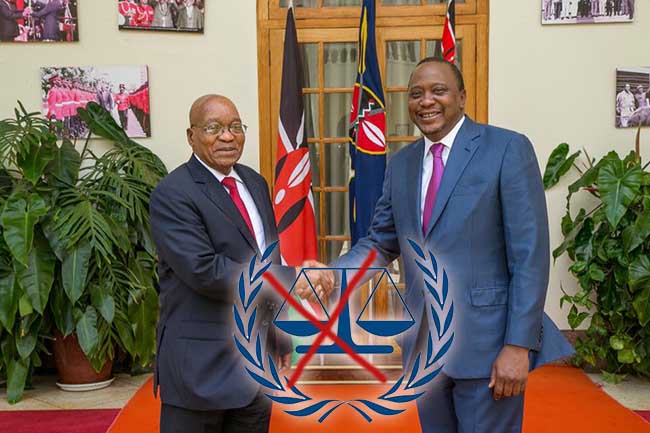During the state banquet held for South African President Jacob Zuma recently President Kenyatta made one of those simple statements that tend to have a profound effect. Uhuru explained that before western civilization landed on the shores of Africa, Africans had no one in jail. Essentially Africa had no prisons.
I had never thought about it, but he was right.
I do not know a single African community that used to sentence people to be locked up behind barred rooms for years as punishment for committing a crime. It would have made no sense especially because everyone built their own homes and no one had the time to build communal jail structures. There certainly was also no one who was going to build a house with the sole purpose of locking someone in for long durations. And what did you do with such prisoners when the community had to move!
In the African justice system when you committed a crime you got judged and if found guilty your punishment was instantaneous. In most cases certain compromises would be made including the option of paying off whatever losses had been incurred by your actions, with additional socio-economic sanctions. In extreme cases the perpetrator would be sentenced to death, usually delivered in some very painful ways. However such punishment would be public as a lesson to those behind, not revenge. Once the punishment was delivered everyone moved on.
However even for the worst crimes Africans would always find a way of ensuring some mode of restoration was done to those who had incurred direct losses. Even in the case of murder a system would be found to ensure that whatever losses such murder had caused or would cause would be made up for by the family of the guilty person; even where the direct perpetrator ended up being killed.
This system of criminal justice is called restorative justice and it focuses on the rehabilitation of offenders through reconciliation with victims and with the community at large. This is why there was no option in Africa where someone would be locked up in a room for years as a punishment.
When western ‘civilization’ hit our shores it introduced retributive justice. This is defined as ‘punishment inflicted on someone as vengeance for a wrong or criminal act’. Retributive justice is about revenge. When someone commits a crime the main focus of the punishment is to make them pay; through pain or jail-time/isolation from society. There are no attempts to restore the one who has been wronged.
The conflict between African and Western civilization is best represented by these two justice systems. Now these differences are playing out at the International Criminal Court. South Africa argues that it ‘has found that its obligations with respect to the peaceful resolution of conflicts at times are incompatible with the interpretation given by the International Criminal Court of obligations contained in the Rome Statute’. It is therefore withdrawing from the ICC. Burundi has initiated the same process. Kenya is not far behind. I expect literally every African state to cancel its membership to this court over the next 10 years.
This exodus is mainly because Africa and the West look at justice differently (and the ICC seems to see only the Western type of justice). However it is also because the world has become a global village and as Africa finds its place in this village African states will continue to explore ways to not only deliver justice, but also governance and economic development, that align to the African culture. I therefore expect Africa to not only mainstream its own form of justice, but to it find its own format of democracy (or whatever we will call it) and determine its own economic agendas.
Africa really is rising.
By: Ngunjiri Wambugu
















